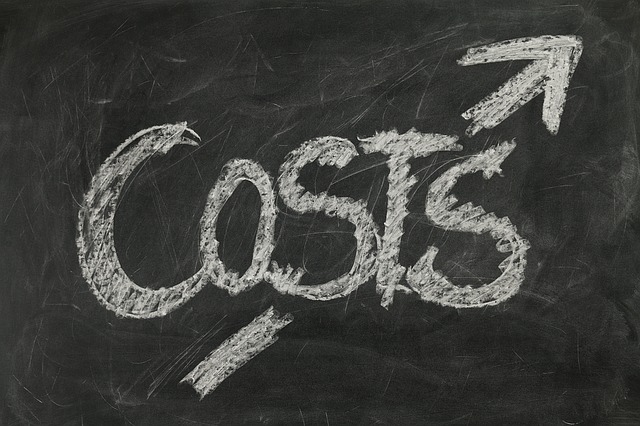Lease vs. Loan: What is the Difference
Leasing and financing are two forms of asset acquisition. Depending on your financial situation, short-term and long-term goals, both options have their advantages and disadvantages. It’s best to compare a lease vs. loan side by side to see which one is right for your situation.
What’s a Lease?

A lease is a contractual agreement between the owner and the user of the asset for a specified time mentioned in the lease agreement. The owner and the user of the asset are not the same people. The lessee will pay money to the lessor for the usage of the asset in return. At the end of the lease contract, the parties have four options:
- Return the asset to the lessor
- Renew the leasing period
- Buy the asset at a low cost if the lessor agrees
- Re-lease the current asset with another one
While leasing an asset, you may come across lease brokers. They are the intermediary between the lessor and the lessee who helps the parties enter a lease agreement. You may also encounter lease financiers such as financial institutions and commercial or foreign banks. The lease financiers provide financial assistance for the lessor to enter into a leasing agreement.
There are many types of leases, but operating leases and financial leases are the most common.
An operating lease is a short-term contract. The lessee is only responsible for making the lease payments. The lessor pays for all the expenses such as repairs, taxes, and maintenance. Risks and rewards are not entirely transferred to the lessee.
A financial lease is a long-term contract. The ownership of the asset is transferred to the lessee. The lessee bears all the expenses, including insurance, maintenance, taxes, and other applicable costs associated with the leased asset. In addition, the lessor transfers all the risks and rewards related to the lessee.
Most Commonly Leased Items
Instead of getting an equipment loan, most people opt for an equipment lease, especially in the following categories:
- Transportation equipment such as trailers and vehicles
- Medical and laboratory equipment such as X-ray machines, CT scanners, MRI lasers
- Construction equipment such as tractors, forklifts, and loaders
- Hospitality equipment such as stoves, refrigerators, tables, and chairs
- Manufacturing and production equipment such as tanks, generators, and packaging machinery
- Fitness equipment such as treadmill and rowing machine
- Audio-visual equipment such as projectors, speakers, microphones
- IT equipment such as hardware and software
Equipment leasing will not show on the balance sheet of the company.
What’s a Loan?

Loans are borrowed money to finance something that you cannot afford upfront. Lenders such as banks and credit unions can give borrowers a fixed amount of cash called “principal”. But lenders provide you with money at a cost. In addition to paying back the principal amount, borrowers are required to pay interest. When you make timely payments on your loan, you can build a positive credit history.
There are different types of loans to suit individual needs. These include student loans for tuition, small business loans for entrepreneurs, mortgage loans for buying a property, auto loans to get a vehicle, cash advance loans, and payday loans for emergencies. The financial institution you borrowed the money from will set up a repayment plan with you, including the interest rate and other applicable fees.
The interest rate of a loan is influenced by different factors such as the applicant’s credit score, loan type, and the amount borrowed. For example, higher credit scores qualify for lower rates. Additionally, there are two types of interest rates: fixed rate and variable rate. A fixed interest rate remains unchanged through the entire term loan. The variable rate is based on a chosen index and a fixed margin. If the index increases or decreases, so does the variable rate. The index is the benchmark interest rate that reflects market conditions and alters based on the market. The margin is the amount set by your lender when applying for a loan. The index and margin are combined to determine your interest rate when the initial rate expires.
Also, loans can either be secured or unsecured, depending on whether they are protected by collateral or not. Collateral is a valuable asset like your house or vehicle that the lender can take as repayment if you default on your loan. Secured loans usually have a more attractive interest rate since they are less risky to the lender than unsecured loans because they are protected by collateral.
Lease or Loan? The Major Differences

What makes leasing and financing similar is that both require monthly payments. Other than this fact, leasing and getting a loan have significant differences. The table below shows the difference between loan and lease and helps you get a better understanding of the two.
| Lease | Loan | |
|---|---|---|
|
Duration |
Longer |
Shorter |
|
Down payment |
0% to 6% of the original amount |
10% to 20% of the original amount |
|
Ownership of Asset |
The lessor is the owner of the asset |
The borrower/buyer is the owner of the asset |
|
Monthly payments |
More affordable |
More expensive |
|
Amount financed |
Up to 100% |
60% to 80% |
|
Collateral |
The collateral is the asset that you are leasing |
Typically, yes, but it also depends on the type of the loan |
|
Documentation Process |
Faster |
Lengthy |
Leasing vs. Financing a Car
A car is the most expensive purchase most people make that, over time, decreases in value. If you can’t afford to pay for the entire amount of the vehicle upfront, you are left with two options: leasing or financing.
Leasing a car is like agreeing to rent it for a fixed term of three to five years. You pay a security deposit and make monthly payments based on the expected value of depreciation. At the end of the lease term, you can return the leased car, start the process over again by signing another lease deal and getting a new car, or buying it from the dealer for its residual value. In all cases, if you have excessively damaged the leased vehicle, you will have to pay an extra fee. In addition, leasing has restrictions such as mileage limits. If you pass the mileage limit, you must pay additional fees.
Financing a car means buying it with the help of an auto loan. You pay a deposit and make monthly payments. A car loan term ranges from four to five years. Once you pay back your auto loan, you are the owner of the vehicle. You don’t have to worry about damages to your car, mileage limit, or penalties because it is your property.
Leasing payments are lower than auto loan payments because the cost of the lease is based on the depreciation of the vehicle. Thus, you pay the difference in the car’s value from the start of the lease and the value at the end of the lease, plus interest.
If you prefer to switch cars every few years to drive the latest styles and make lower monthly payments, then an auto lease is the best option. But if you are someone who drives lots of miles and doesn’t want to make any monthly payments anymore, then getting a car loan is the right option for you.
Read the table below to understand the difference between financing and leasing, and make a better-informed decision based on your needs.
| Pros of Leasing a Car | Cons of Leasing a Car |
| Get a new model every lease term | Mileage restriction and penalties |
| Price is determined by depreciation | Excess wear and tear fees |
| You don' have to worry about selling the car | Early trade penalty |
| A car lease is often covered by a warranty | No customization |
| Lower monthly payments | Infinite monthly payments (upon renewal) |
| You can choose to buy the vehicle at the end of the lease term | No ownership if you don't want to finance the leased vehicle at the end of the term |
| Pros of Financing a Car | Cons of Financing a Car |
| Unlimited mileage usage | Responsible for selling car |
| Asset can be used as collateral | Car quickly loses value |
| No restrictions on who can drive | Down payment |
| Customization | Responsible for maintenance |
| Finite monthly payments | Higher monthly payments |
| Ownership | Paying sales tax upon purchase |
Leasing vs. Financing a House
Owning your own house is no doubt a dream for a lot of people. However, many have chosen to lease with rising house prices across the past ten to fifteen years.
Renting is better if you plan to live in the home for a short term. The cost of renting is significantly cheaper than buying something and then selling it after only a few years. Even with selling, there is no guarantee that the market will continue to rise to afford a break even or profit point.
Also, most finance experts view home ownership as a liability rather than an investment because investing money in a home means less money is available to invest elsewhere with a potentially higher return. Moreover, rent costs are lower than the monthly mortgage fee.
There is a lot to consider when weighing such a big decision — renting and buying each come with their pros and cons.
| Pros of Leasing | Cons of Leasing |
| Total mobility and flexibility at the end of the lease | More expensive in the long term |
| Not responsible for maintenance | Less control of your living environment. You can't make changes to the property without the landlord's approval |
| No need to sell the house | No control over annual rent fluctuations |
| Low down payment | Limited housing security |
| Ability to spend your money instead of paying for a down payment |
Moving costs |
| Not liable for unexpected expenses | |
| Credit requirements are less stringent |
| Pros of Buying | Cons of Buying |
| More affordable payments in the short term | Putting down a substantial deposit |
| Total control to make alterations | HOA fees |
| Option to potentially deduct mortgage interest paid, which can lower taxes and build equity | Could have used your down payment in a business that could generate much higher returns |
| Offers a sense of security and stability | Additional costs such as repairs, maintenance, property tax, and homeowners' insurance |
| No landlord | Landlord |
| Closing costs and purchasing fees | |
| High-interest rates |
Sum Up
Whether to lease or finance is a case-by-case situation. There are expenses on both sides of the spectrum, as well as advantages and disadvantages to consider. In the end, deciding to lease or finance is a personal decision, and only you can choose what is suitable for you. So do your research, look at your finances, personal priorities, current situation, and consider all of your options to make an informed decision.
FAQ
Is a Loan Better Than a Lease?
The answer to this question depends on several factors, including your lifestyle, the nature of the assets, and your financial situation. For instance, you may prefer a loan because:
- You have more control over assets that you purchase than those that you lease. When you get a loan to purchase an asset, you are able to modify it as needed and use it however you want. When you lease an asset, you have less control over it and must follow the leasing company's instructions.
- With a loan, you are only responsible for the depreciation of the asset. With a lease, you may be responsible for both depreciation and regular maintenance costs. These maintenance costs can add up quickly and eat into your budget.
Can I Build Credit if I Lease?
Depending on the lessor, you may be able to build your credit with a lease. If the company you are leasing from reports your payments to the major credit bureaus, you can build up your credit history and score. However, beware that this has its downsides too. If you miss your payments, these will also be reported to the credit bureaus. In turn, it can cause your credit score to drop.
Is It Better to Lease or Finance a Car?
Deciding between leasing vs. financing a car depends entirely on your financial situation. There are many factors to consider when deciding whether to lease or finance a car, including your budget, the type of car you want, and the terms of the lease or loan.
If you have a lower budget, it may be easier to afford a car by leasing rather than financing. Leasing may also be a better option if you regularly trade in cars and want to avoid the costs and paperwork of refinancing.
On the other hand, financing may be more affordable for those with higher budgets, who are more likely to qualify for lower interest rates. Additionally, some dealerships may offer better incentives for financed cars than leased ones.
Leasing may also be a good option if you plan to keep a car for less than three years. In this case, you will likely save money by paying less in maintenance and upkeep costs during that time period.
What Is a Leaser?
The leaser is an individual or company that rents or leases assets to another individual or company. The leaser will lease the asset to a lessee for a specified amount and period of time. For example, a car dealership is the leaser, and the individual leasing a vehicle is a lease. The dealership will set the monthly payment and term for the car. In turn, the lease will make the monthly payments to be able to drive the car.
What Do I Do at the End of My Lease?
The steps you take after your lease ends largely depend on the asset. In most cases, once your lease ends, you will need to return the asset to the leaser. You may be able to qualify for a new lease, but the term and rate will vary. In other instances, you may be able to pay the remaining balance and purchase the asset. For instance, if your car lease ends, you can return the vehicle and lease a newer model at a different price. Or, if the dealership allows, you can pay for the remaining balance outright and purchase the car.





